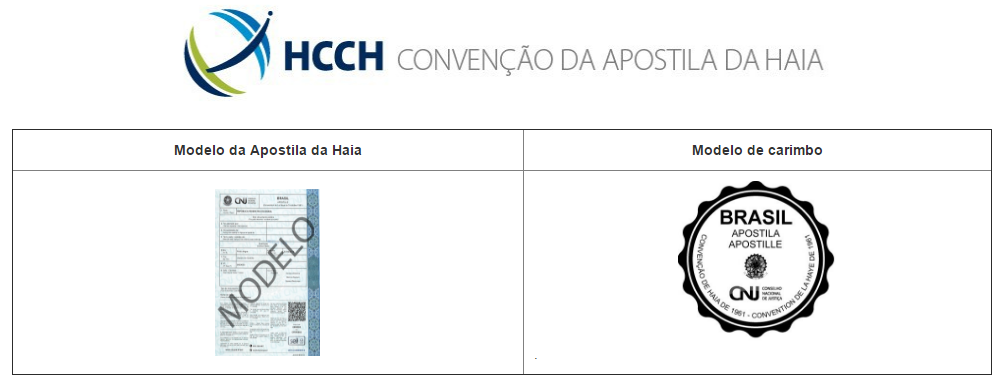The Apostille Convention has already entered into force in Brazil
- 20 September 2016
On the 5th October 1961, it was signed at The Hague the Convention of the Elimination of the Requirement of Legalization of Foreign Public Document, also known as Apostille (The Haya Convention).
On the 6th July 2015 (almost 54 years later), the Brazilian National Congress approved of the adherence of Brazil to the Convention, under terms of the Legislative Decree no. 148, which became effective in the Federative Republic of Brazil on the 14th August 2016.
The purpose of Apostille is to expedite and to simplify the legalization of documents among the signatory countries, entitling the mutual recognition of Brazilian documents overseas and foreign documents in Brazil through a single seal called Apostille.
In practical terms, the Apostille consists of inserting into the document an annotated (apostilé) seal or stamp, which certifies the authenticity of the public document, issued in a certain country and required in another. Hence, the legal efficacy of the documents among the Member Countries of the Convention are recognized, and, thus, removing the need of having the document legalized at the Brazilian Consulate of the Member Countries and, in turn, entitling Brazil to enjoy the same procedures, when receiving documents emanated from abroad of one of the Member Countries.
Namely, the only formality, which can be required to attest the veracity of the signature, quality and authenticity is the seal or stamp, granted by the competent Authority of the country whence the document emanates.
Note, however, that the formality of the Apostille cannot be required, should the laws regulations or costumers in force in the country in which the act was signed remove, simplify or dispense with the act of legalization.
The main advantages of the adherence to the Convention are the quicker circulation of public documents among the Member Countries, the removal of the red tape of the certification system of public documents, and, just as well, the reduction of the costs, ultimately benefiting the international trade and the performance of the individuals of other jurisdictions, having legal effects in Brazil.
The Apostille entitles public documents issued in Brazil to be more easily legally recognized in the Member Countries of the Convention, provided they are properly annotated by the competent Authorities.
In Brazil, the Justice National Council is the Agency responsible for coordinating and regulating the application of the Treaty through the competent Authorities to do so.
Upon the implementation of the Apostille, the act of certification on a document on the part of the competent Authority suffices to prove its public character, namely, the Authority certifies that the signature or stamp affixed to the document was issued by a public Officer performing his functions, without any possibility of the Authorities of the country receiving the document raising a requirement for another test of authenticity in relation thereto. However, it is well to clear up that this procedure is equally valid for the legalization, namely, the same does not certify the validity of the contents of the document, rather its authenticity.
The Convention is applied to public acts drafted and submitted in one of the Member Countries. Public acts are considered as follows:
i)Documents originated from an Authority or from an officer depending upon any jurisdiction of the country, such as those from the Public Prosecution Service, Notary Public or from a Bailiff.
ii) Administrative documents.
iii) Notarial Acts.
iv) Official Declarations, such as references of registration, visa for a fixed date and authenticity of signature inserted into acts of a private nature.
And, the Convention is not applied to:
i)Documents drafted by diplomatic Agents or from the Consulate;
ii) Administrative documents directly in connection to a trade negotiation or to Customs.
For the Apostille to be issued, it is necessary that:
1.it be a document issued or authorized from a signatory country;
2.it be used in a Country Member of the Convention; and
3. it bear a public character, under article first of the Convention.
Any individual holding a public document, which wishes to certify the authenticity may request the certification of the Apostille before one of the competent Authorities, which may be found through the electronic site below:
http://www.cnj.jus.br/poder-judiciario/relacoes-internacionais/convencao-da-apostila-da-haia/carto rios-auorizados
The implementation of “Apostille” means a significant improvement for the legalization of public documents, issued abroad, as well as for those issued in Brazil to be sent abroad, which, in general terms, have stronger points than weak, and, thus, favoring the trade and multicultural interchange among the Member States, removing the barriers preventing the moving of the documents.
Example of annotation and stamp:

http://www.cnj.jus.br/poder-judiciario/relacoes-internacionais/convencao-da-apostila-da-haia/carimbo%E2%80%8B









